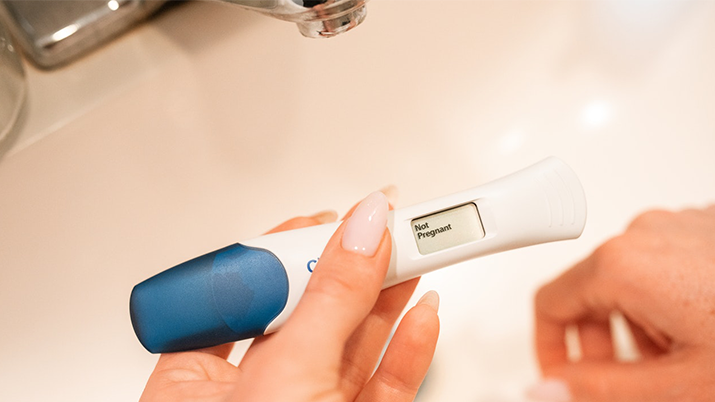Dr. Daniela Palombo, assistant professor and cognitive scientist in the department of psychology, received a 2021 Catalyst Grant from the Women’s Health Research Institute (WHRI) to fund her research project A Woman’s Journey to Parenthood: Memory, Self-Schema, and Well Being During Fertility Treatment. Dr. Samantha Dawson, assistant professor and clinical psychologist in the department of psychology, is co-investigator of the project.
The Women’s Health Research Institute, in partnership with the BC Women’s Health Foundation, launched the Catalyst Grant competition to fund the advancement of knowledge in women’s and newborn’s health in British Columbia. Through the $25,000 grant funding, Drs. Palombo and Dawson will investigate how significant infertility experiences are remembered, and how such memory is shaped by social support factors. The researchers also ask how memory of infertility experiences might shape a woman’s identity, and their well-being
“I am really grateful and excited to receive funding from the WHRI to support a research topic on an understudied but significantly important topic in women’s health. This work is a new direction for my laboratory and we plan to study infertility, identity, and well-being through a cognitive science lens. I am also looking forward to forging this new collaboration with Dr. Dawson, an incredible colleague who studies couples’ sexual health and well-being.”


Daniela Palombo
Palombo says that while infertility is common in women all over the world, the psychosocial factors that impact a women’s well-being during this time are not well understood.
She adds, “Women’s health research is so vital and spans a number of important areas. Many health topics that are critically important to women have been overlooked historically; although progress is being made (much in part to institutes like WHRI), more work is needed still.”


Samantha Dawson
Join us in congratulating Dr. Palombo and Dr. Dawson on receiving this support for their research and for advancing women’s health research.
Adulthood is marked by a significant transitionary role for many, namely the transition to parenthood. Parenthood is a cherished goal for many individuals, yet approximately 1 in 6 Canadian couples experience infertility (the involuntary absence of conception). Half of struggling couples report that their journey through infertility is the most stressful time of their lives and many seek fertility treatments as a solution. The journey can be characterized by joy and excitement (e.g., following news of conception), but also distress and sadness (e.g., with news of a failed treatment or pregnancy loss). This proposal examines how significant infertility experiences are remembered, and how such memory is shaped by social support factors. We also ask how memory of infertility experiences might shape a woman’s identity, and their well-being. Elucidating links between memory, identity, social support, and well-being in women seeking fertility treatment can ultimately be used to help women and couples better navigate their fertility journey, protecting them against reduced quality of life. Indeed, knowledge gains from this work could foster strategies for more positive interactions among women and their medical team. Thus, this work is highly relevant to the general public (e.g., women who are undergoing infertility treatment or a difficult medical issue) and healthcare providers (e.g., infertility related medical practitioners). This research will also yield new knowledge for scholars in cognitive, clinical, and social psychology who are interested in the complex interplay among these topics.
Dr. Palombo investigates cognitive and neural factors associated with how we form and retain autobiographical memories and how this may differ across individuals. She also examines how autobiographical memory influences non-mnemonic functions, with a primary focus on future imagination and decision making.
Dr. Dawson's research program focuses on identifying mechanisms contributing to sexual function in individuals and couples, with the goal of using these mechanisms to develop targeted interventions for sexual dysfunction. Her clinical interests include evidence-based interventions for sexual dysfunction.
The Women’s Health Research Institute (WHRI) is devoted to improving the health and health care of girls and women, serving as a catalyst for research in women’s health and supporting an expanding national network of women’s health researchers, policy makers and health care providers.



